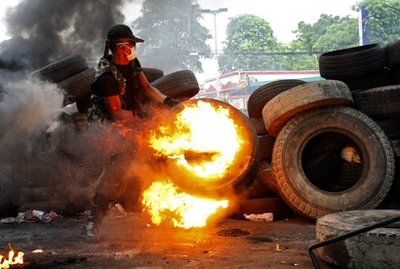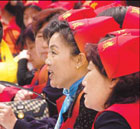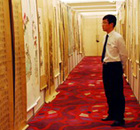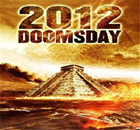Asia-Pacific
Thai gov't rejects talks, defends deadly crackdown
(Agencies)
Updated: 2010-05-17 07:02
 |
Large Medium Small |
BANGKOK – Anti-government unrest boiling over in downtown Bangkok spread to other areas of the capital and Thailand Sunday as the military defended its use of force in a crackdown that has left at least 30 people dead in four days. Thai leaders flatly rejected protesters' demands that the United Nations intercede to end the chaos.
 An anti-government protester sets a tire on fire on Sunday May 16, 2010 in Bangkok, Thailand. [Agencies] |
Towering plumes of black smoke hung over city streets where protesters set fire to tires, fired homemade rockets and threw gasoline bombs at soldiers who used rubber bullets and live ammunition to pick off rioters who approached their lines. Army sharpshooters crouched behind sandbags carefully taking aim and firing to keep attackers at bay.
Government spokesman Panitan Wattanayagorn, however, said a pause was unnecessary since troops were "not using weapons to crack down on civilians." The government maintains it is targeting only armed "terrorists" among the demonstrators.
Authorities insisted they would continue the crackdown aimed at choking off the Red Shirts, who have occupied a 1-square-mile (3-square-kilometer) protest zone - barricaded by tires and bamboo spikes - in one of Bangkok's ritziest areas since early April. The protesters are demanding that Prime Minister Abhisit Vejjajiva resign immediately, dissolve Parliament and call new elections.
The political conflict is Thailand's deadliest and most prolonged in decades, and each passing day of violence deepens divides in this nation of 65 million - Southeast Asia's second-largest economy.
Soldiers have encircled the core protest site and cut off utilities to the area, which was largely free of violence most of Sunday. Protest leaders told women and children with them to move to a Buddhist temple compound within the zone.
The areas between the site and the military's perimeter have become a no-man's land where gunshots and blasts can regularly be heard. But some of the worst clashes Sunday were behind the military cordon - an indication the unrest was not contained within the protest area and was spreading.
In one working-class neighborhood, several hundred demonstrators gathered under an expressway overpass and in small side streets, where they sheltered between clashes with nearby soldiers.
There were also reports of scattered unrest outside the capital. A military bus was burned in the northern city of Chiang Mai and protesters demonstrated in the northeastern towns of Nongkhai and Udon Thani to defy the government's state of emergency, which bans gatherings of more than five people.
The decree, which gives the army broad powers to restore order, was extended Sunday to 22 of Thailand's 75 provinces, up from 17.
According to government figures, 59 people have died and more than 1,600 have been wounded since the Red Shirts began their protests in March. The toll includes 30 civilians killed and 232 injured since Thursday in fighting that has turned parts of central Bangkok into a battle ground.
Army spokesman Col. Sansern Kaewkamnerd held a nationally televised news conference late Sunday to defend the military's use of force, showing images that appeared to show protesters firing guns and grenades at soldiers, and in one case trying to light the diesel tank of a government truck. He said the sharpshooters were there only to provide cover for security forces on the ground and were not shooting arbitrarily.
About 5,000 people are believed camped in the protest area, down from about 10,000 before fighting started Thursday. The violence ignited after the army started forming a cordon around the protesters' encampment and a sniper shot and seriously wounded a Red Shirt leader, a former army general who was their military strategist.
After night fell Sunday, heavy gunfire and sporadic explosions echoed for more than three hours near a park that abuts the Red Shirts' encampment. It was not clear who was doing the shooting, but the sound appeared to be that of automatic rifles being fired rapidly, apparently in retaliation to intermittent gunfire by the Red Shirts.
The Red Shirts, many who hail from the impoverished north and northeast, say Abhisit's coalition government came to power through manipulation of the courts and the backing of the powerful military, and that it symbolizes a national elite indifferent to their plight.
Nattawut Saikua, one of the protest leaders, told reporters and supporters on Sunday that the Red Shirts were willing to negotiate immediately with the government.
"What's urgent is to stop the deaths of people. Political demands can wait," he said.
Nattawut said the UN must serve as a mediator in the talks because, "we don't see any (other) neutral and just organizations."
Panitan, the government spokesman, said there is no need for the UN to get involved in the internal matters of a sovereign nation. He said all groups using weapons to threaten security forces must "stop their actions immediately."
The government also announced sanctions prohibiting financial institutions from doing business with 93 individuals and 13 companies it says are associated with former Prime Minister Thaksin Shinawatra, who was ousted in coup in 2006 and is seen as a major backer of the Red Shirt movement. The list included Thaksin's family members, his political and business associates and Red Shirt leaders.
Days of prolonged fighting and disruption to normal city life have taken their toll on Bangkok residents. Most shops, hotels and businesses near the protest area are shut and long lines formed at supermarkets outside the protest zone as people rushed to stock up on food. The city's two mass transit trains remained closed and those wanting to travel in the city often have to take long detours to avoid potential clash zones.
The government announced a public holiday in Bangkok on Monday and Tuesday. Schools are already closed for a week.
The crisis appeared to be near a resolution last week when Abhisit offered to hold elections in November, a year early. But the hopes were dashed after Red Shirt leaders made more demands.










